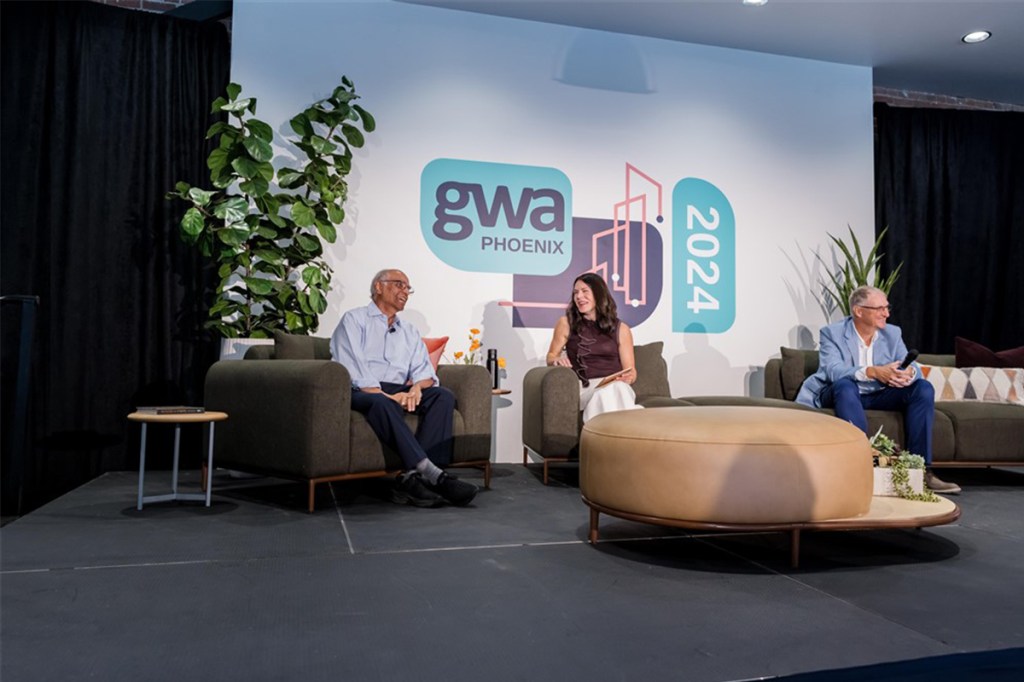Anant Yardi’s Vision: A New Era for Flex Workspaces and Collaborative Growth
The recent acquisition of WeWork by Yardi Systems, led by its founder and CEO, Anant Yardi, has sent ripples through the flex workspace industry. In a candid and insightful interview, Yardi shared his vision for the future of flex workspaces, emphasising a commitment to collaboration, inclusivity, and technological empowerment. His message is particularly significant for independent and smaller flex workspace operators who may have previously viewed WeWork’s rapid growth and market dominance with trepidation. Yardi’s leadership is ushering in a new era where even the smallest operators can thrive alongside industry giants.

A Humble Beginning with a Grand Vision
Anant Yardi’s journey began in 1982, driven by necessity, determination, and a deep-rooted belief in leveraging technology to solve real-world problems. Starting as a small programming outfit in Santa Barbara, Yardi Systems has grown into a global powerhouse with 9,500 employees across 15 locations, servicing millions of residential and commercial real estate units. Despite this exponential growth, Yardi remains grounded and approachable, qualities that shine through in his interactions with the industry.
During the interview, Yardi shared anecdotes from his early days, highlighting the importance of stubbornness, rapid execution, and the ability to pivot when things go wrong. These traits have shaped his success and become cornerstones of Yardi Systems’ corporate culture. Yardi believes this foundation of resilience and adaptability is essential for the success of any business, especially in the rapidly evolving flex workspace sector.
The Strategic Acquisition of WeWork: Beyond Real Estate
When Yardi Systems decided to acquire WeWork, it wasn’t merely a strategic business move; it was a calculated decision rooted in a broader vision for the future of the workspace industry. Yardi emphasised that Yardi Systems does not see itself as a real estate operator. Instead, the company’s strength lies in providing the technological backbone that enables operators to manage and scale their spaces effectively.
This distinction is crucial for independent operators who may have felt threatened by WeWork’s aggressive expansion in the past. Under Yardi’s stewardship, the focus is shifting away from the “growth at any cost” mentality that once defined WeWork. Instead, the new strategy emphasises profitability, sustainability, and, above all, collaboration with other operators.
Yardi’s vision is clear: Yardi Systems aims to be the technology partner that empowers operators of all sizes to succeed. This approach mitigates the risk of conflict and opens new avenues for cooperation and mutual growth. Yardi is keen to ensure that the transition of WeWork into this new model is smooth and beneficial for the entire industry.
Empowering Independent Operators Through Collaboration
One of the most exciting aspects of Yardi’s vision is introducing the “affiliate program.” This program is designed to integrate independent operators into a more extensive network that leverages WeWork’s brand recognition and technological infrastructure while allowing them to maintain their independence. For small and mid-sized operators, this could be a game-changer.
Through the affiliate program, corporate clients who might typically gravitate toward more significant, more established players like WeWork will now have the opportunity to discover and utilise spaces operated by smaller, independent companies. This not only significantly boosts the visibility and revenue potential of these smaller operators but also enriches the overall ecosystem of flex workspaces by offering clients a more diverse range of options.
Yardi highlighted that this program is already gaining traction, with several corporate clients showing interest in accessing this expanded network of spaces. For independent operators, this presents an unprecedented opportunity to tap into a larger market without the need for extensive marketing budgets or the pressure to scale rapidly. He also announced that the Vast Coworking Group was the first to agree to join the partnership.
A Reassuring Commitment to Integrity and Security
Data security and the potential for conflicts of interest have been long-standing concerns among operators who use platforms provided by larger companies like Yardi Systems. Yardi addressed these concerns head-on, reassuring the industry that Yardi Systems has a 40-year track record of integrity and has never compromised client data. He acknowledged the importance of maintaining this trust, particularly as the company ventures into new areas like flex workspaces.
Yardi emphasised that the likelihood of intentional data misuse is zero, pointing to the company’s rigorous cybersecurity measures and commitment to protecting client information. He also noted that while the flex workspace segment currently represents a small portion of Yardi Systems’ overall revenue, the company’s investment in this area is driven by the belief in its potential for growth and the desire to be an excellent technical partner to the industry.
The Future of Flex Workspaces: A Vision of Space Anywhere, Flex Everywhere
Anant Yardi’s vision for the future of flex workspaces is encapsulated in two key concepts: “space anywhere” and “flex everywhere.” These ideas reflect the growing demand for flexibility in how and where people work. Yardi envisions a world where commercial buildings seamlessly integrate flexible spaces catering to long-term tenants and transient users.
Dedicating a portion of their space to flexible use presents an opportunity for building owners and operators to attract a broader range of clients. Yardi believes this approach makes properties more attractive to potential tenants, helps fill vacancies, and generates additional revenue streams.
Yardi Systems is positioning itself as the technology provider that is enabling this transformation. By offering a platform that supports the integration of flex spaces within traditional commercial buildings, Yardi aims to help operators and owners alike capitalise on this trend. The company’s long-term goal is to be the tech backbone supporting the entire industry, facilitating growth and innovation.
Addressing Concerns and Building Trust
Yardi is acutely aware that some in the industry may view the acquisition of WeWork with skepticism. After all, WeWork’s rapid rise and subsequent challenges have left a lasting impact on the flex workspace sector. However, Yardi’s transparent and humble approach is designed to build trust and foster community within the industry.
During the interview, Yardi spoke candidly about the challenges of turning WeWork into a profitable and sustainable company. He acknowledged the risks but expressed confidence in the company’s ability to overcome them. His strategy focuses on measured growth, careful risk management, and a commitment to the long-term success of both WeWork and the broader flex workspace industry.
Conclusion: A Collaborative Future
Anant Yardi’s leadership marks a turning point for WeWork and the flex workspace industry. His vision of collaboration, inclusivity, and technological empowerment offers a new path forward for operators of all sizes. Under Yardi’s guidance, the industry can look forward to a future where the benefits of flexible workspaces are accessible to everyone and independent operators can thrive alongside more prominent players.
For members of the Global Workspace Association, Yardi’s message is one of hope and possibility. The future of flex workspaces is bright, and with the right partnerships and technology, the growth opportunities are limitless. Yardi’s commitment to supporting the industry through collaboration and innovation is a welcome change that promises a new era of success for all.
As the industry continues to evolve, the emphasis on collaboration over competition will be vital to unlocking the full potential of flex workspaces. With Anant Yardi at the helm, the path forward is clear: together, we can build a more flexible, inclusive, and prosperous future for the global workspace community.
Summarised on behalf of the GWA by Mike LaRosa from ThisWeekInCoworking.com.




